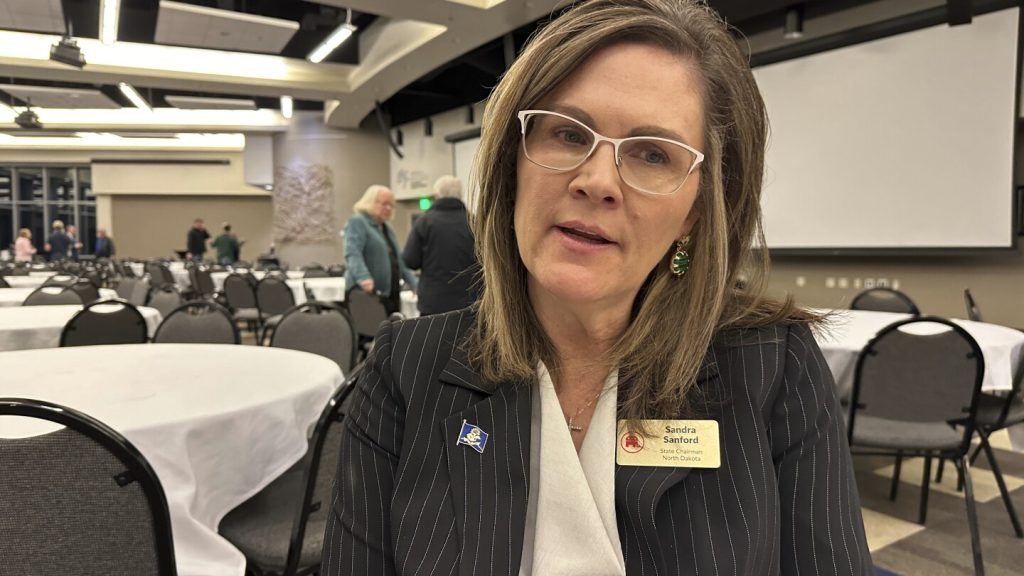As North Dakota’s Republican and Democratic parties gather for endorsing conventions this week, they face different challenges. The Republican Party is divided, with top candidates unsure about seeking the party’s endorsement. On the other hand, the Democratic Party is struggling to find a full slate of candidates to endorse. The state’s lone U.S. House member, Kelly Armstrong, is seeking the GOP endorsement for governor, while Lt. Gov. Tammy Miller will run in the primary election. The conventions’ endorsements are set for Friday and Saturday in Fargo, with past candidates sometimes ignoring the convention’s results and still winning the primary.
The value of the party endorsement is debated, with some members believing it still holds significance in influencing voters. The Republican Party in North Dakota is split between Trump-aligned conservatives and establishment Republicans, with internal disagreements leading to challenges within the party. State GOP chair Sandi Sanford expressed disappointment with candidates bypassing the convention and emphasized the importance of seeking the party’s endorsement to stay relevant and valid. At the convention, Republicans will address resolutions, including those related to protecting the unborn and opposing the addition of sexual orientation and gender identity as legally protected classes.
In contrast, the Democratic Party in North Dakota faces challenges in a predominantly Republican state, where they haven’t won a statewide office in over a decade. Democratic-NPL Party Chair Adam Goldwyn expects a full slate of statewide candidates and believes the party’s policies have appeal, despite facing headwinds. Former Republican U.S. Rep. Denver Riggleman, who worked for the Jan. 6 House committee, will speak at the Democrats’ convention to showcase inclusivity within the party and welcome individuals from various backgrounds. The party hopes to gain ground in legislative races due to dissatisfaction with Republican policies and ethics.
Republicans are preparing for their convention with divisions between different factions within the party. State GOP chair Sandi Sanford attributed the disagreements to human nature and emphasized the need to give candidates reasons for seeking the party’s endorsement to maintain relevance. While some members hope that certain resolutions proposed at the convention won’t be approved, Sanford clarified that they are position statements and not laws. Democrats are also gearing up for their convention, with fewer delegates registered compared to the Republican convention, but with the expectation of a full slate of candidates emerging before the June election filing deadline.
The political landscape in North Dakota poses significant challenges for both parties, as Republicans currently hold all statewide offices and congressional seats. The upcoming endorsing conventions are crucial for shaping each party’s strategy and candidate selection as they aim to gain ground in a deeply red state. While Republicans are dealing with internal divisions and debates over the value of the party endorsement, Democrats are focusing on promoting their policies and attracting a diverse group of candidates. Both parties are gearing up to make their case to voters ahead of the upcoming election, with a focus on addressing the specific challenges and opportunities presented by North Dakota’s political landscape.


